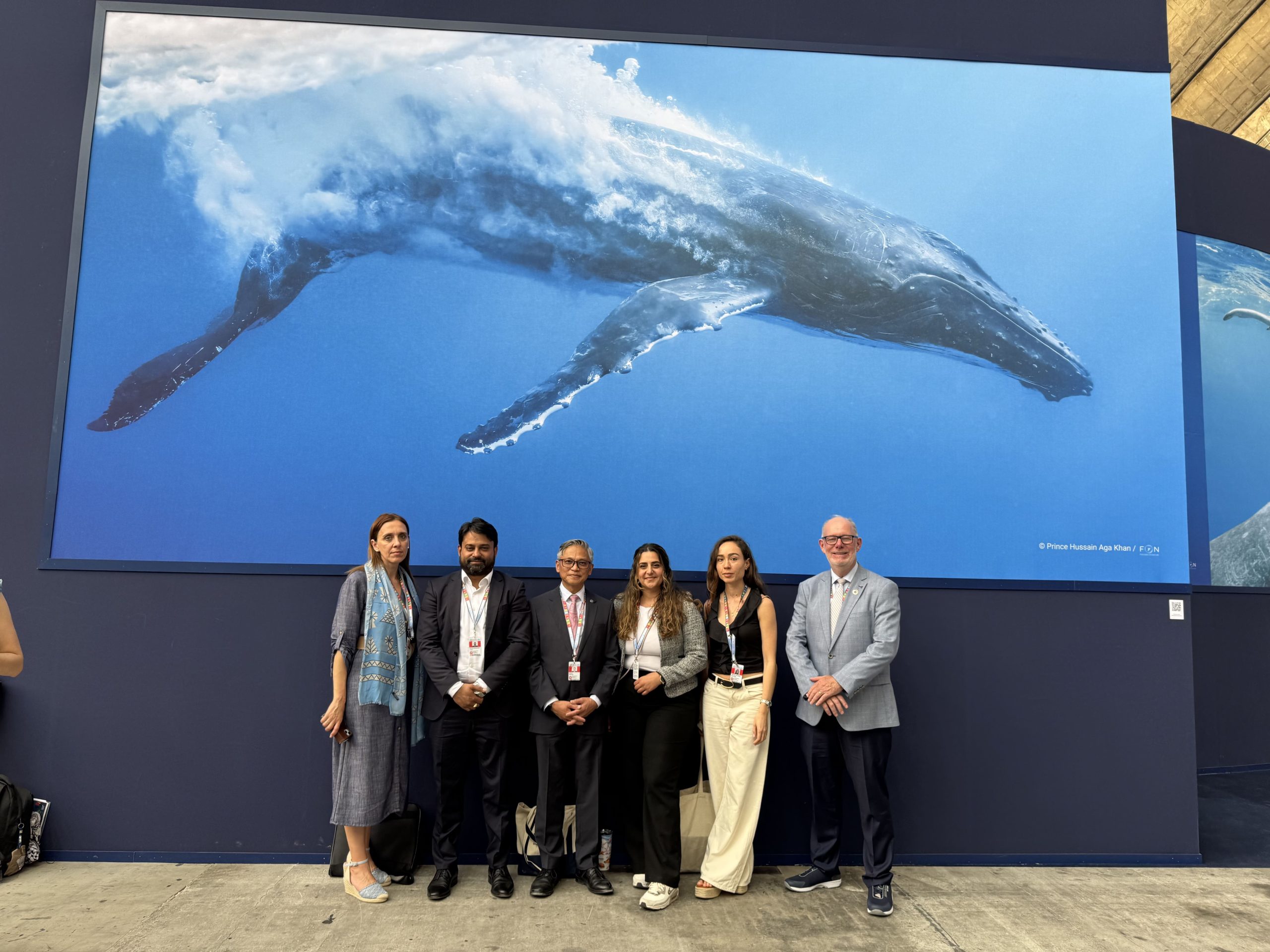
From 9-13 June, the World Maritime University (WMU) will participate in the 2025 United Nations Ocean Conference (UNOC), in Nice, France. Co-hosted by France and Costa Rica, the high-level gathering convened global leaders under the theme “Accelerating action and mobilizing all actors to conserve and sustainably use the ocean.”
The 2025 United Nations Ocean Conference (UNOC)
Accelerating action and mobilizing all actors to conserve and sustainably use the ocean
The WMU delegation was led by President Maximo Q. Mejia, Jr., who emphasized the University’s commitment to supporting the International Maritime Organization and Member States through maritime and ocean education, research, and capacity development.
Maximo Q.Mejia
President, World Maritime University
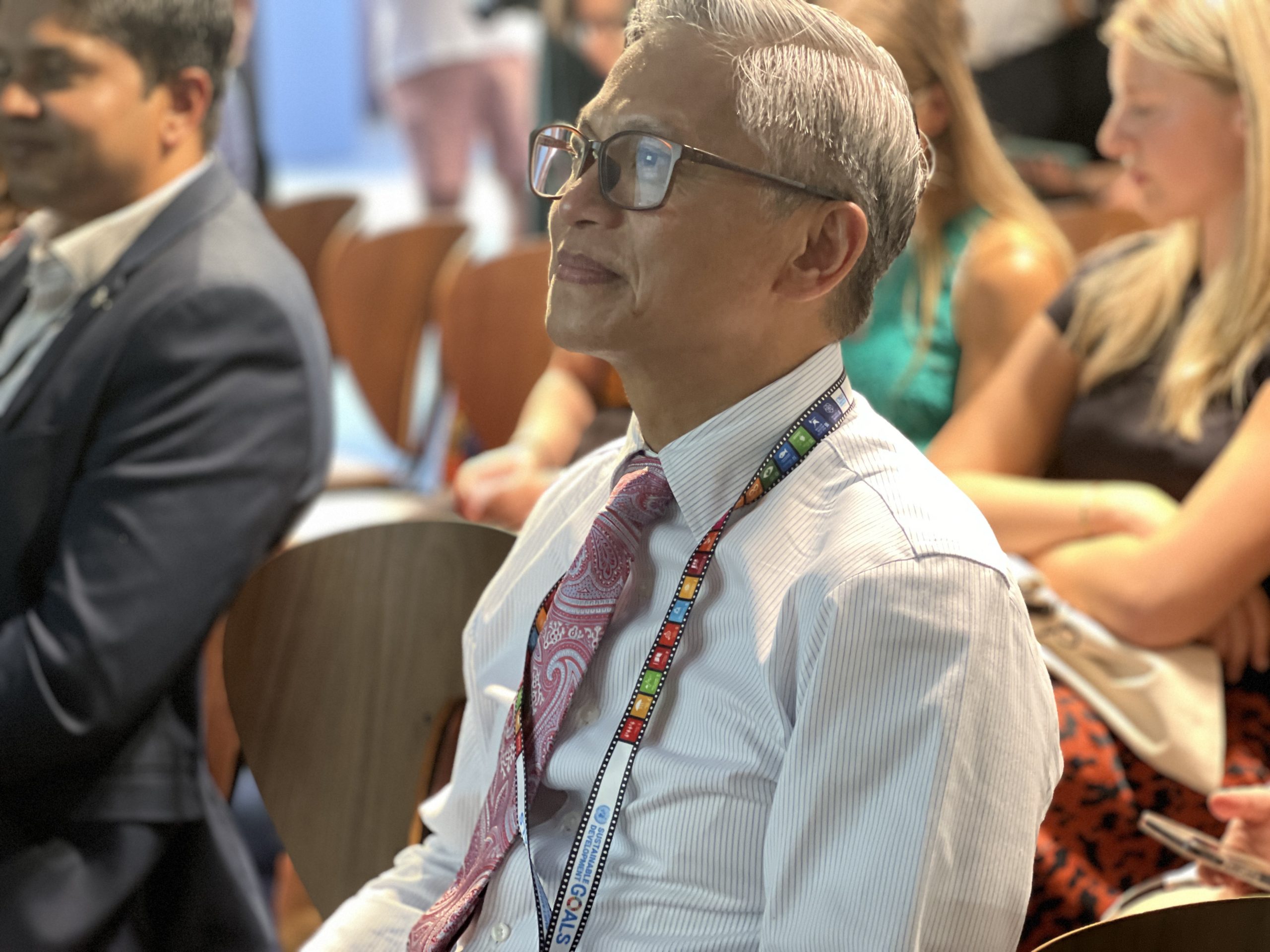
“WMU is committed to ocean conservation and to taking action that ensures we respect and preserve the ocean—our planet’s lifeblood—which provides us with vital living and non-living resources, and connects us all and sustains the global economy through shipping. We must remain steadfast in our collective efforts to steward this vital resource wisely, as the future of humanity and all life on Earth depends on it,” said President Mejia.
wmu-goi side events at unoc3
As an official UNOC supporter, the WMU–Sasakawa Global Ocean Institute (WMU-GOI) co-hosted three Side Events on 13 June in the Conference’s Blue and Green Zones:
Accelerating Sustainability: Transforming Mediterranean and Black Sea Fisheries and Aquaculture
Organized by the Food and Agriculture Organization General Fisheries Commission for the Mediterranean (FAO GFCM), the high-level panel was moderated by Professor Ronán Long, Director of the WMU-GOI. The event highlighted regional cooperation, launched the GFCM Voluntary Ocean Commitment, and mobilized sustainability pledges from key stakeholders.
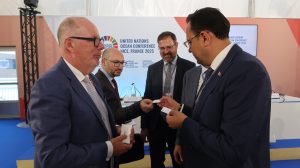
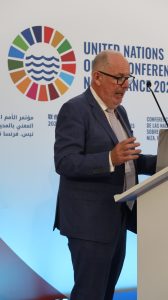
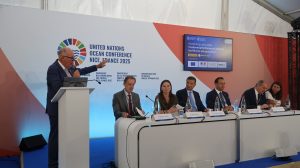
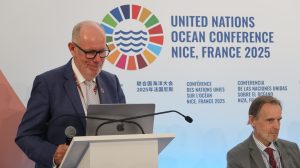
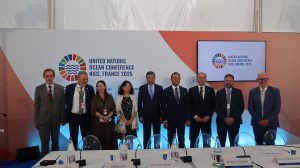
Charting the Future: BBNJ and Ocean Governance Solutions for the Triple Planetary Crisis
Organized by the WMU-GOI, this roundtable explored solutions to the triple planetary crisis, including biodiversity protection, legal reforms, and technology for marine data sharing. WMU speakers included Dr Zhen Sun and Dr Tafsir Matin Johansson with representatives from the Organisation of Eastern Caribbean States (OECS), Sargasso Sea Commission, and Institute of Marine Affairs of Trinidad and Tobago.
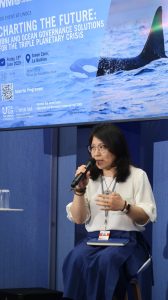
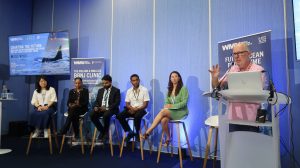
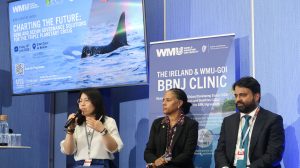
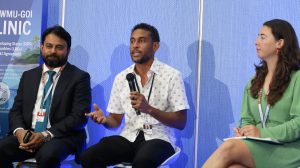
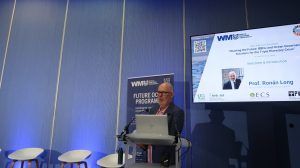
Dive into Action: Uniting Ocean Ambassadors for a Sustainable Future.
Co-organized with Positive Vibes Only (PVO) Expeditions and OECS, this creative public workshop at “La Baleine” blended ocean literacy and engagement through art, music, virtual reality, and interactive activities, encouraging multi-generational participation.
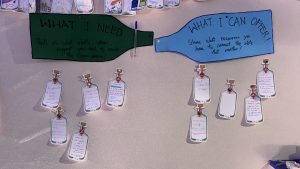



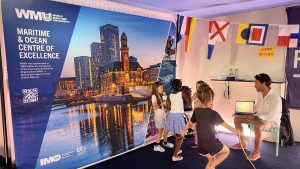
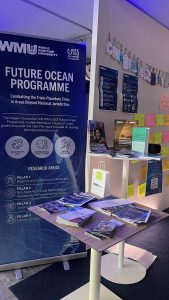
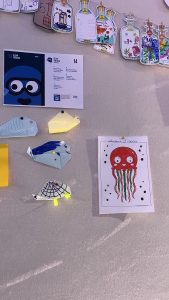
Participation in Partners Events
Throughout the week, WMU-GOI experts also contributed to several partner events.
Professor Ronán Long spoke at sessions hosted by the MarViva Foundation on Particularly Sensitive Sea Areas, the United Nations Division for Ocean Affairs and the Law of the Sea (UN DOALOS) and the United Nations Nippon Foundation Fellowship (UNNF) on capacity development, the International Union for Conservation of Nature (IUCN)/University of Gothenburg on marine restoration, and the United Nations Mediterranean Shipping Company (UN MSC) Foundation on ocean literacy in the maritime sector.
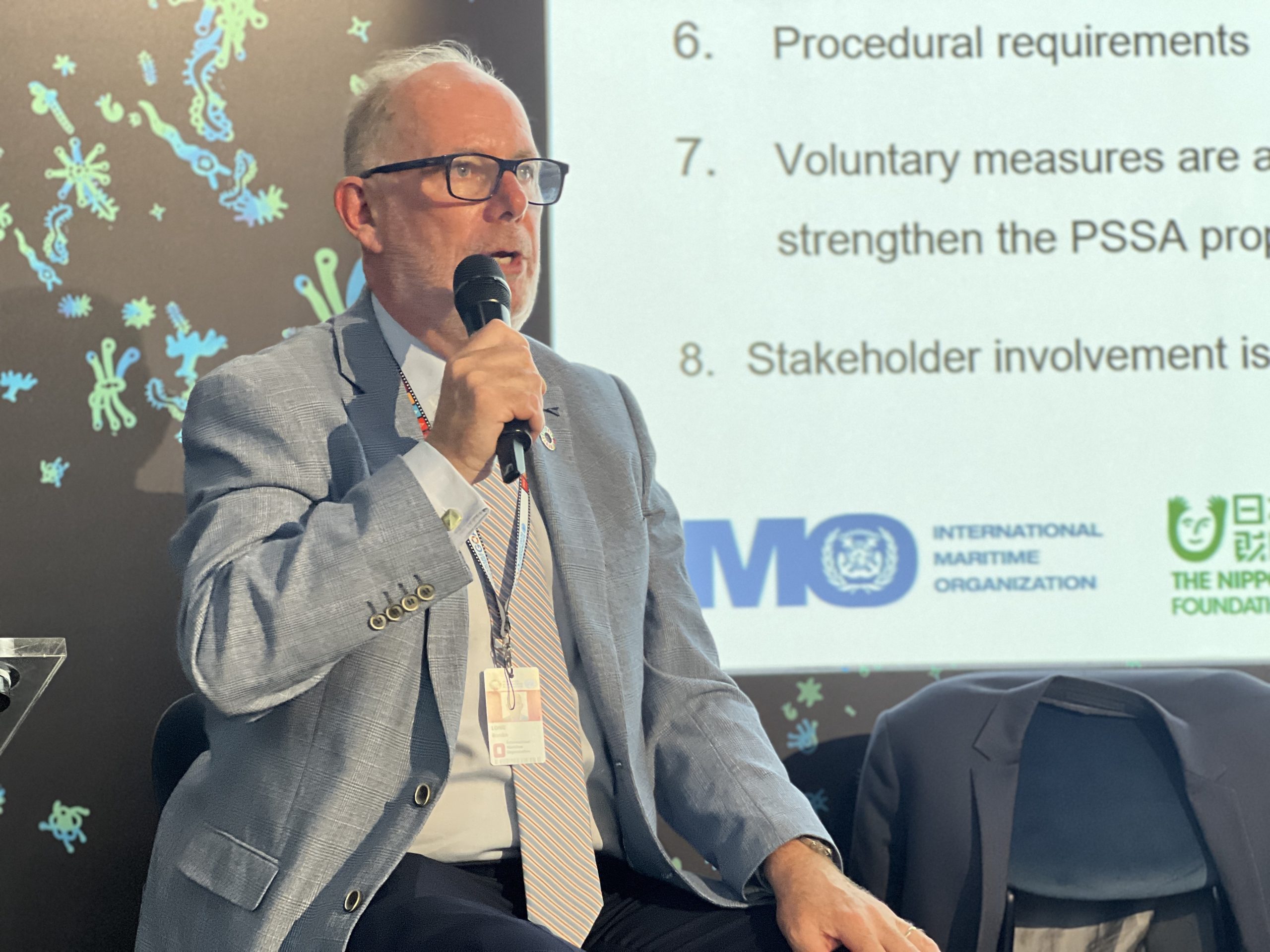
Dr Aspasia Pastra contributed to The Economist – World Ocean Initiative event on technological innovation for ocean health.
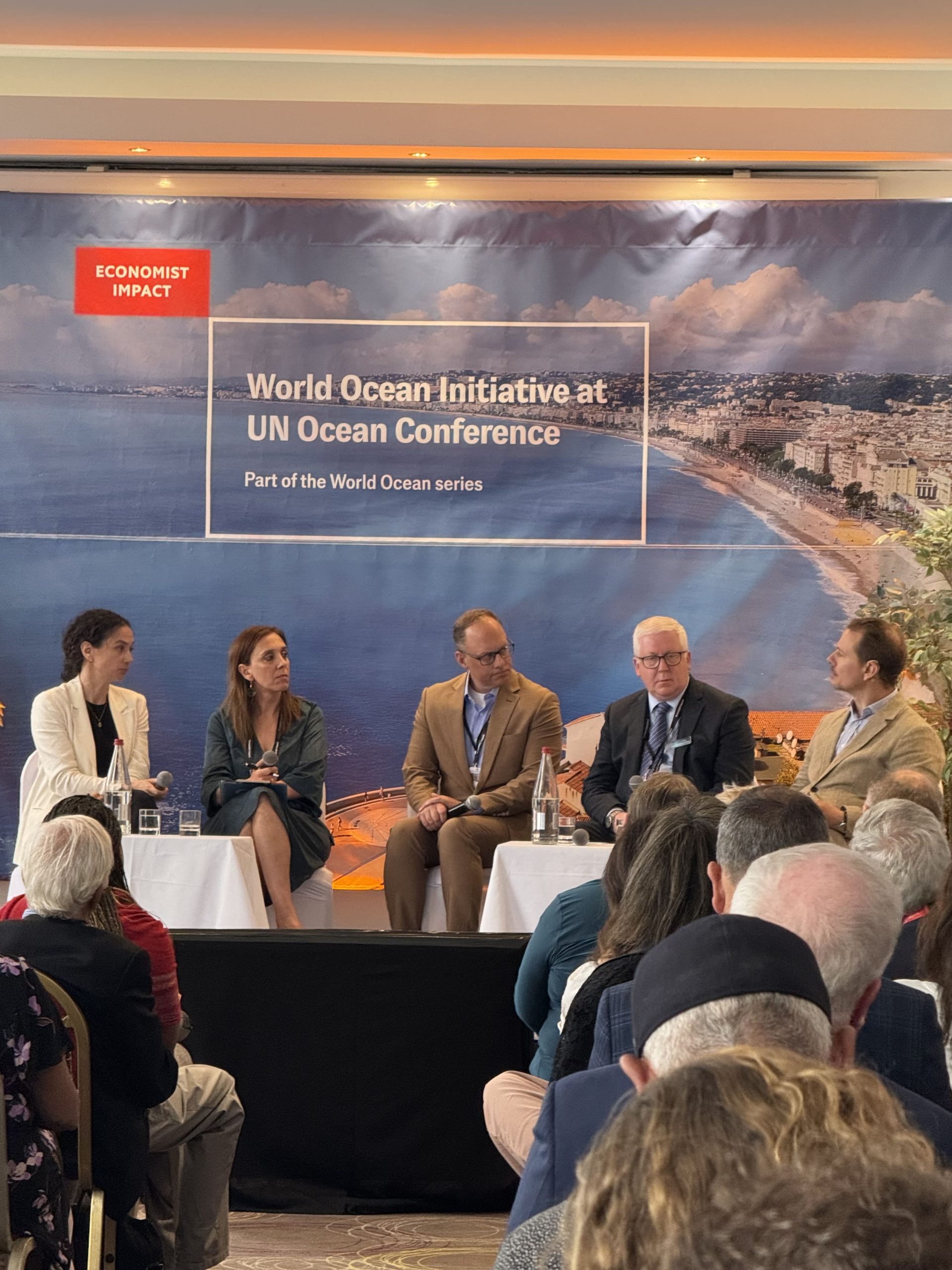
Dr Tafsir Matin Johansson participated in the Lloyd’s Register Foundation panel on engineering solutions for a sustainable ocean economy
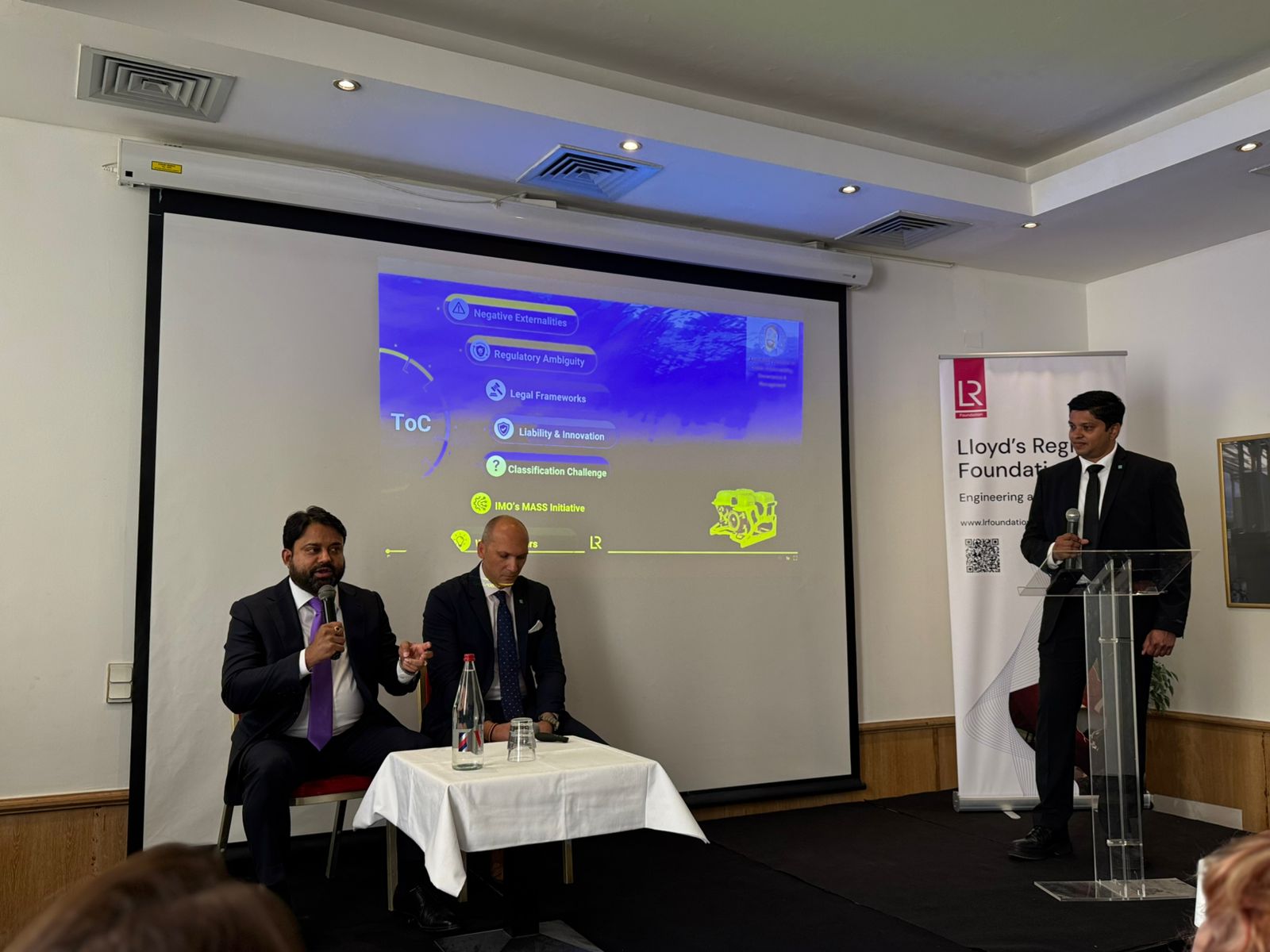
The week-long engagement reflected WMU’s deep commitment to advancing Sustainable Development Goal 14 (Life Below Water) and supporting global ocean governance through education, research, and multi stakeholder partnerships.
The conference outcome document recognized the vital role of maritime transport, infrastructure, and routes in global trade, food and energy security, and the urgent need to cut Greenhouse Gas Emissions in the sector.
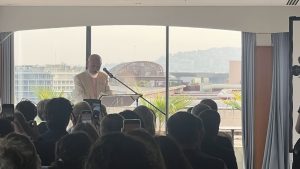
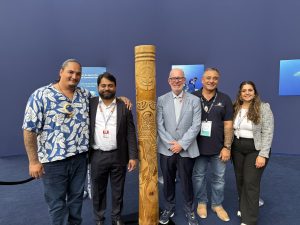
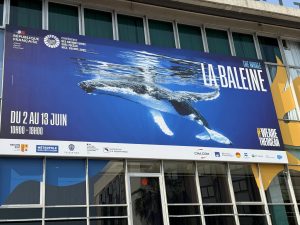
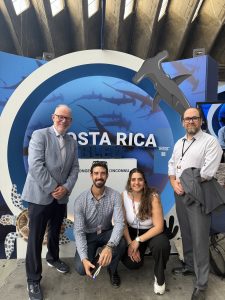
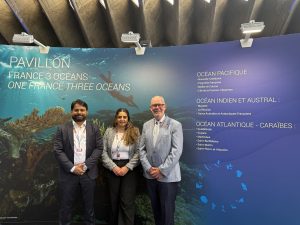
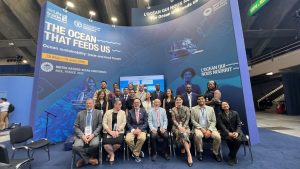
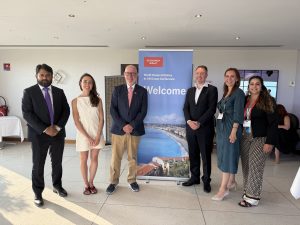
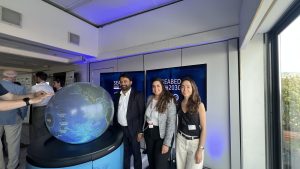
ACCESS THE post event material below
Post event material to the 2025 United Nations Ocean Conference, Nice France
About the 2025 united nations ocean conference
The 2025 UNOC, co-hosted by France and Costa Rica, brings together governments, the UN, civil society, academia, the private sector, and Indigenous Peoples to promote ocean solutions and accelerate implementation of Sustainable Development Goal 14.
About the BBNJ Clinic Programme
The Ireland and WMU-GOI BBNJ Clinic is dedicated to supporting Small Island Developing States (SIDS) and coastal Least Developed Countries (LDCs) in their efforts to ratify and implement the BBNJ Agreement. Effective and prompt implementation of the BBNJ Agreement is crucial for ocean sustainability and conservation and addressing global inequalities in access to ocean resources. SIDS, characterized as ‘large ocean states’ due to their geographical features and interconnection with and knowledge of ocean ecosystems, as well as coastal LDCs, are among the most significant beneficiaries of the Agreement and among the most important actors in contemporary ocean affairs. However, these States can face capacity and resource challenges in implementing the BBNJ Agreement. The Programme aims to fulfill both practical capacity development and hands-on educational mandates. WMU-GOI researchers and external experts, including the lead negotiators of the BBNJ intergovernmental conference, will lead the consultation process facilitated by the Clinic, and facilitate ratification and implementation procedures undertaken by legal advisors, government officials, and relevant stakeholders from SIDS and coastal LDCs.
about FUTURE OCEAN PROGRAMME
The Future Ocean Programme is funded by The Nippon Foundation and aims to generate knowledge and understanding of how law, political science, and public policy are used to effect change in humanity’s relationship with the ocean to combat the triple planetary crisis of biodiversity loss, climate change and pollution.
